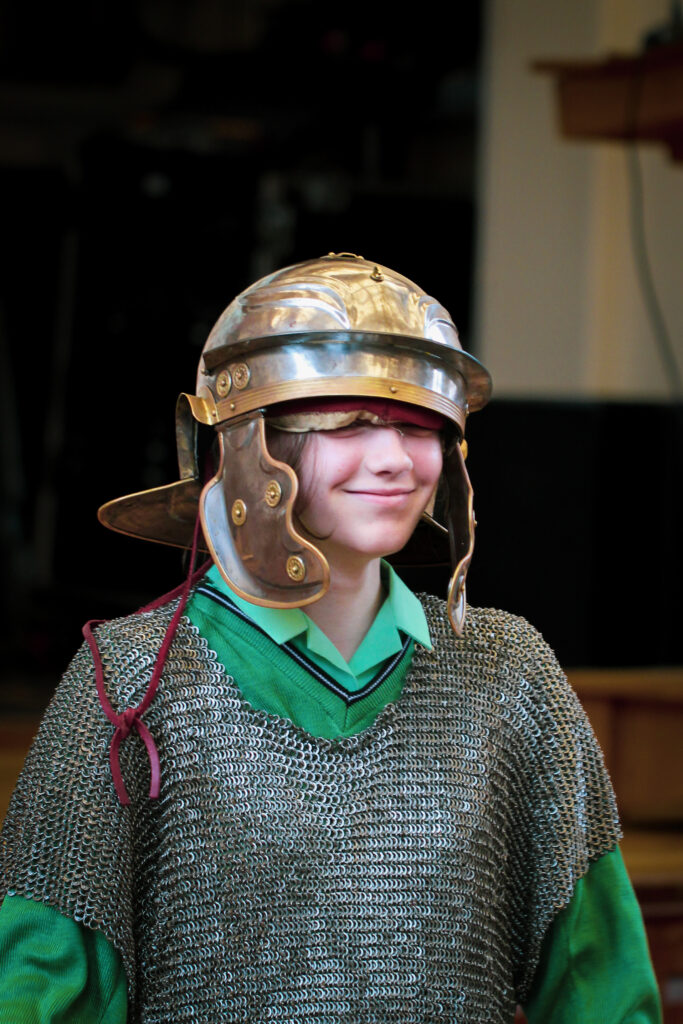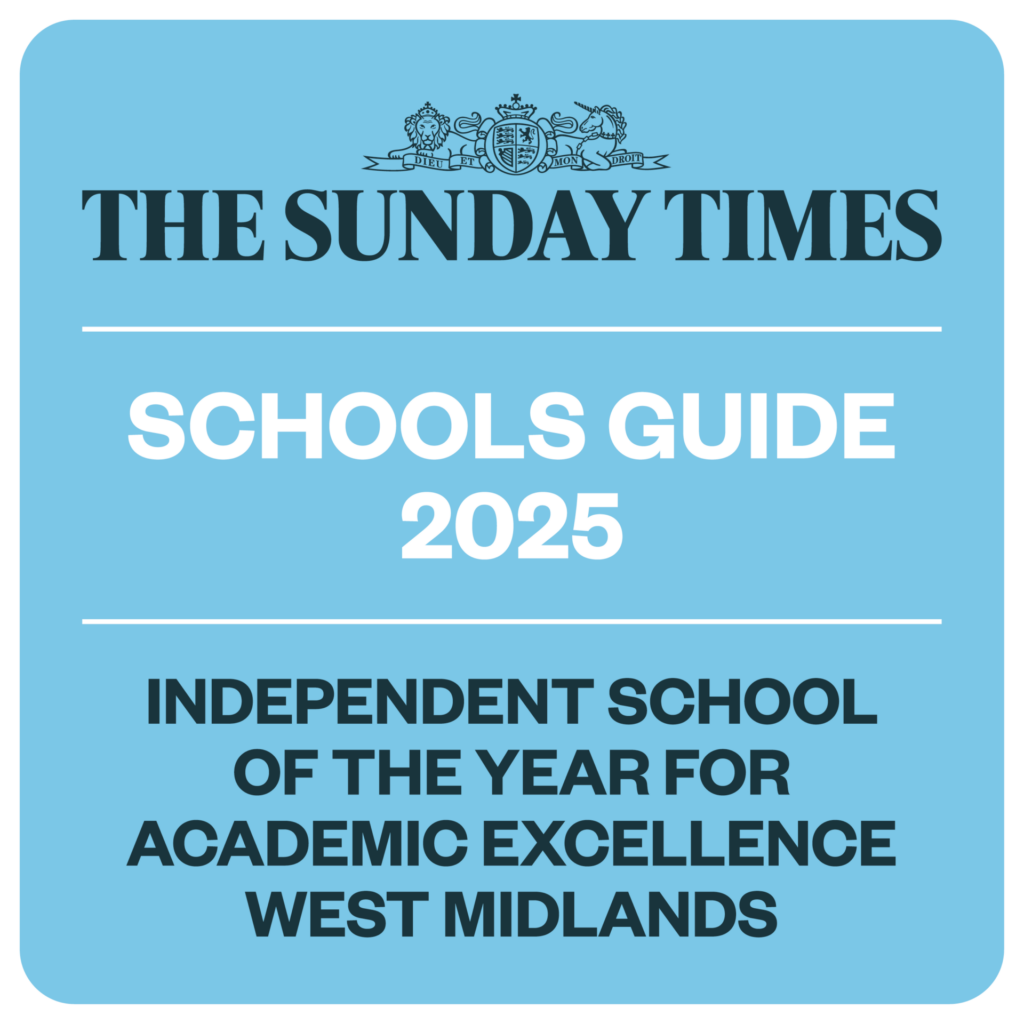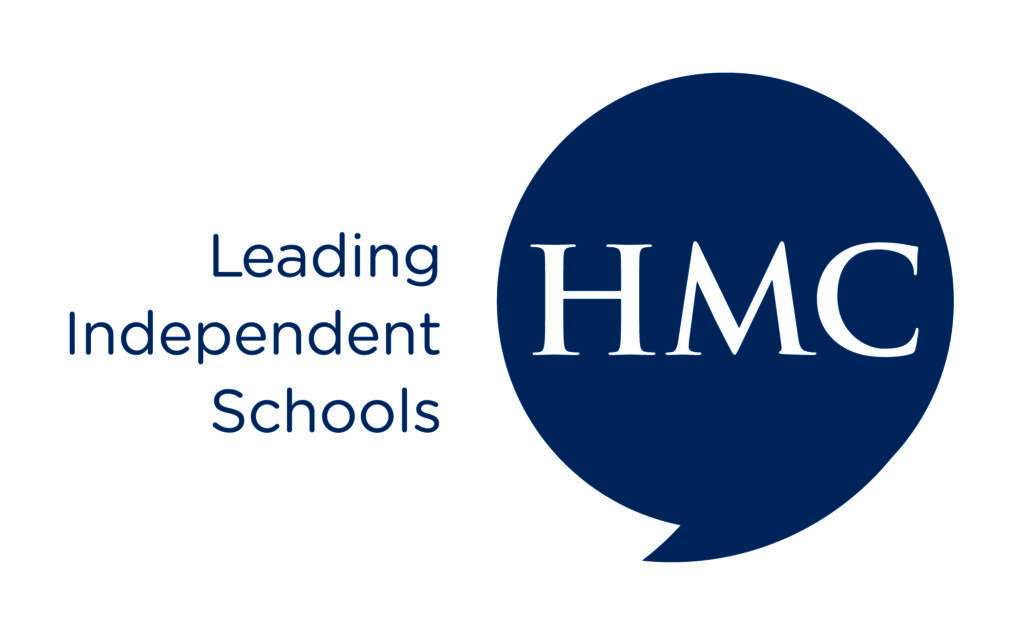History

We aim to ignite each student’s innate curiosity about the past and how it influences our lives today through wide-ranging studies of topics from the medieval period onwards. This encourages our students to appreciate and respect the past and its peoples and cultures.
‘You have to know the past to understand the present’ said the science populiser, Carl Sagan.
Studying History also helps students to analyse and evaluate texts and evidence from a range of sources, to read critically, write persuasively and articulate their ideas confidently and cogently.
Our outstanding staff members are determined to share their passion for History, inspiring students through the exploration of the compelling events, personalities and ideas which have shaped the past and still have resonance today.
From Year 7 to Year 9, students will study a variety of medieval, early modern and modern historical topics.
In Year 7, the course focuses on the Medieval World in the years c.800-1350, concentrating on topics such as the unification of England, the Norman Conquest; the importance of religion and the Church; Islamic Civilisations and the Crusades; the development of castles; and the Black Death and its impact.
In Year 8, the focus shifts to changes in the early modern world, including a study of people of colour in Tudor England; European exploration and expansion into the New World; the Transatlantic Slave Trade; and the progress of Black Civil Rights in the USA.
In Year 9, we begin by examining the political system in Victorian Britain, before considering the changes that took place as a result of popular protest by the middle and working classes, and by women. We then embark upon a depth study of the First World War, from its causes and outbreak to the major battles and the contribution of empire and commonwealth troops.
GCSE History is designed to aid pupils’ abilities to interpret elements of the past that both have shaped and continue to influence the twenty-first century world that they will inhabit.
Students will acquire knowledge and understanding of important historical periods and aspects. They will explore the significance of historical events, people, changes, and issues, critically analyse historical sources, and draw reasoned conclusions. Students will also learn to organise and communicate their knowledge, make historical judgements, and gain an appreciation of key historical developments in the twentieth century.
The course consists of two examined papers: Thematic Depth Studies (Paper One) and the Historical Investigation and Breadth Study in Change (Paper Two). The Thematic Depth Studies covers the development of dictatorship in Germany from 1918 to 1945, and the Cold War rivalry between the two superpowers, the USA and Soviet Union, during the period 1943 to 1972. The Historical Investigation examines the USA ‘Boom, Bust and Recovery’ period from 1918 to 1941, while the Breadth Study in Change looks at China from 1900 to 1989, charting its progress from imperial dynasty to communist state under Mao and the CCP.
The KEHS A Level specification has been designed to help our students understand the significance of historical events, the role of individuals in history, and the nature of change over time. By adopting political, social, economic, and cultural perspectives, they will gain a deeper understanding of the past, as well as the knowledge and skills they require to become successful, global citizens of the future.
Students study three components as part of the course: a British Breadth Study, a non-British Depth Study, and the Historical Investigation.
Component 1: Stuart Britain and the Crisis of Monarchy, 1603-1702
What prompted the English people to execute their own monarch? How did a country farmer become the most important man in Britain and arguably one of the greatest leaders of all time? What factors led a Dutchman to be invited to sit on the British throne? If you are interested in these sort of questions, then this course will provide you with the answers, as well as enabling you to develop your knowledge of a crucial and often overlooked part of British History that played a fundamental role in shaping modern-day politics and ideas about kingship and democracy.
Component 2: France in Revolution, 1774 – 1815
Absolutism, Terror, Monarchy, Partisan Politics, Marie Antoinette, Napoleon, Empire, Guillotine. These are just a few of some of the great people and concepts associated with the study of France during the Revolutionary period. All young people should have an awareness of this seismic period of change in European History. If you are interested in politics, society, international relations, war and conflict and are keen on debating some of the important issues that are still very relevant to the contemporary world, then this course will be of great interest to you.
Component 3: Historical Investigation (Non-Examined Assessment – coursework)
This is one of the most exciting aspects of the course. It will allow students to research a topic of their own choice and submit an investigation of approximately 3500 words in length. The choice of research topic will be discussed with your teachers but can be from any period of history and its theme can focus on British, World or even Local History. This will be marked by your teachers and moderated externally by the Board and will account for 20% of the A Level.
Future Careers
The skills you will develop in History are fully transferable and will prove invaluable for a number of careers, including the law, teaching, librarianship, banking and commerce, publishing, the civil service, heritage, museums and art galleries and a wide variety of social work.
Beyond the classroom
There are numerous co-curricular opportunities in the History Department. There is a junior Horrible Histories themed club for those in Year 7 and Year 8, while for those in Year 9 and above, we hold a fortnightly student-led discussion group which encourages reading and debate around a very wide range of topics. The Department organises annual trips to historically significant sites, tailored for each year group, for example Chepstow Castle for Year 7, as well as exciting foreign trips that offer a global perspective on history, most notably the First World War Battlefields Tour to France and Belgium. These enriching experiences outside the classroom complement the curriculum and ignite students’ passion for history.







